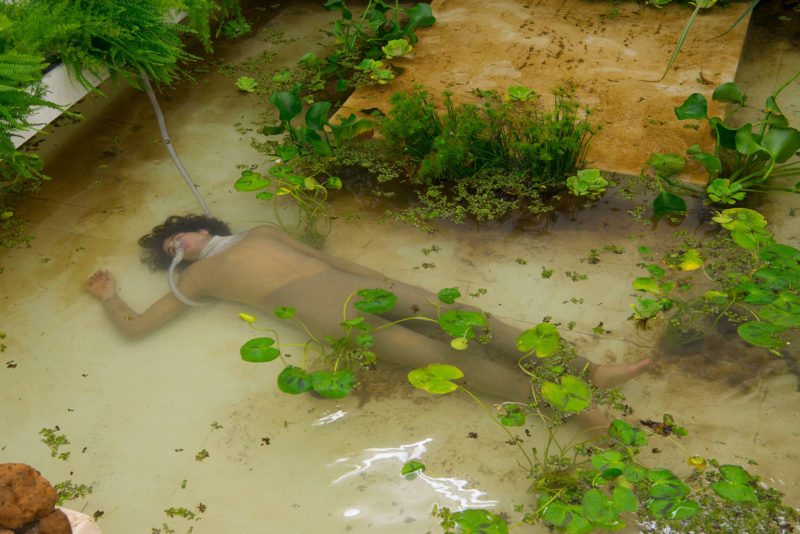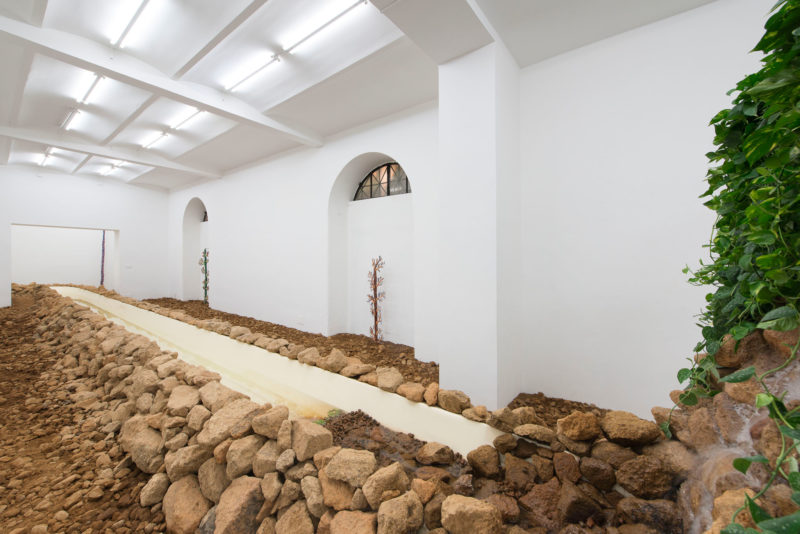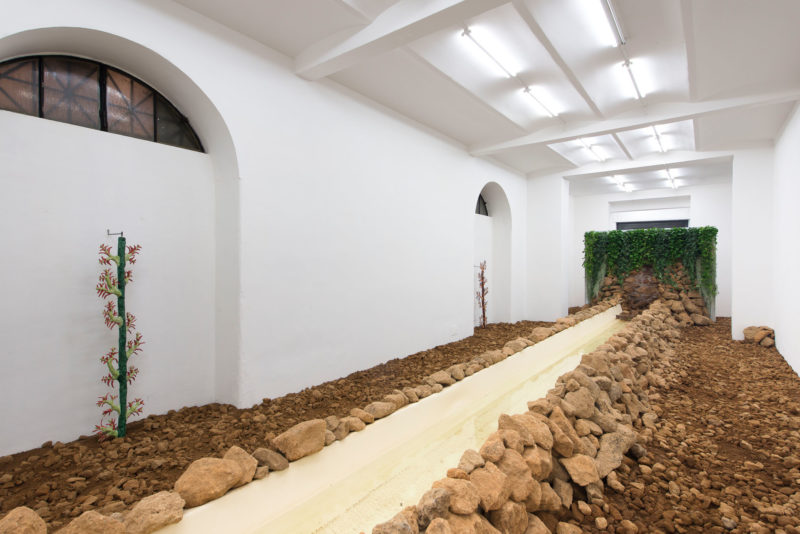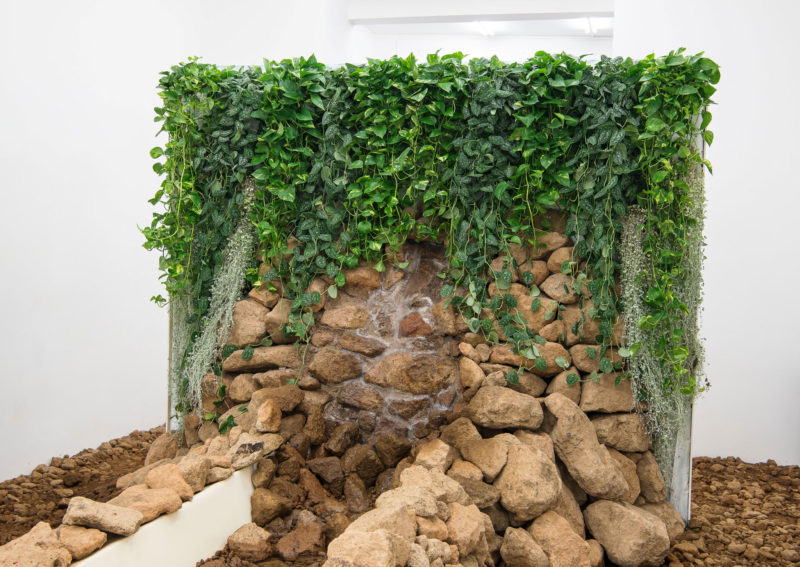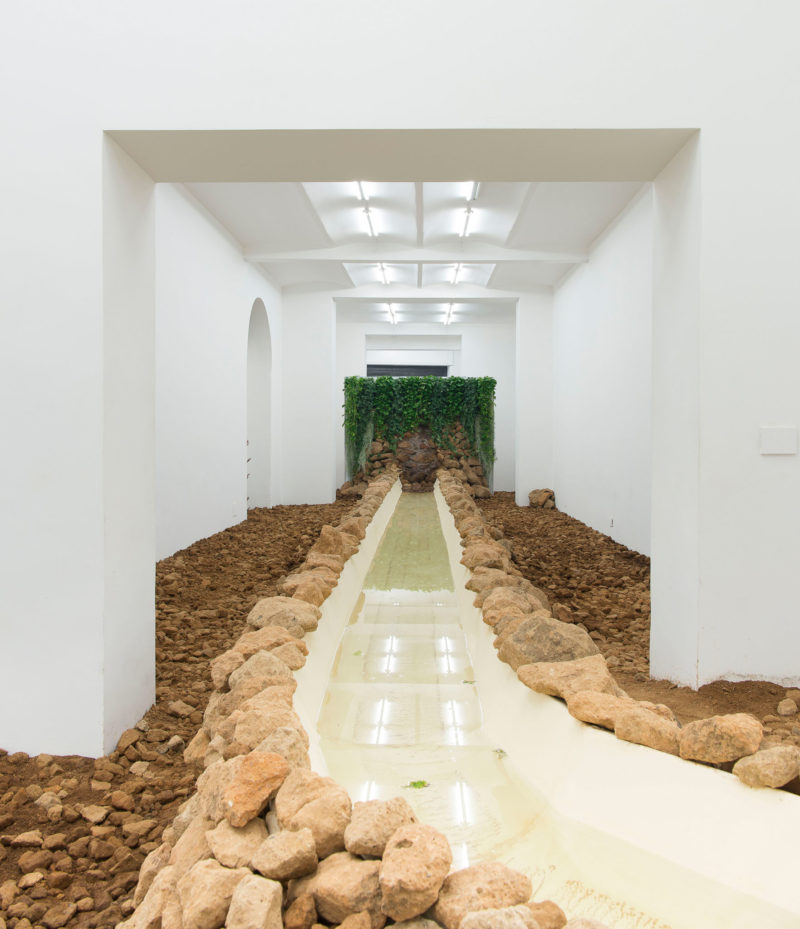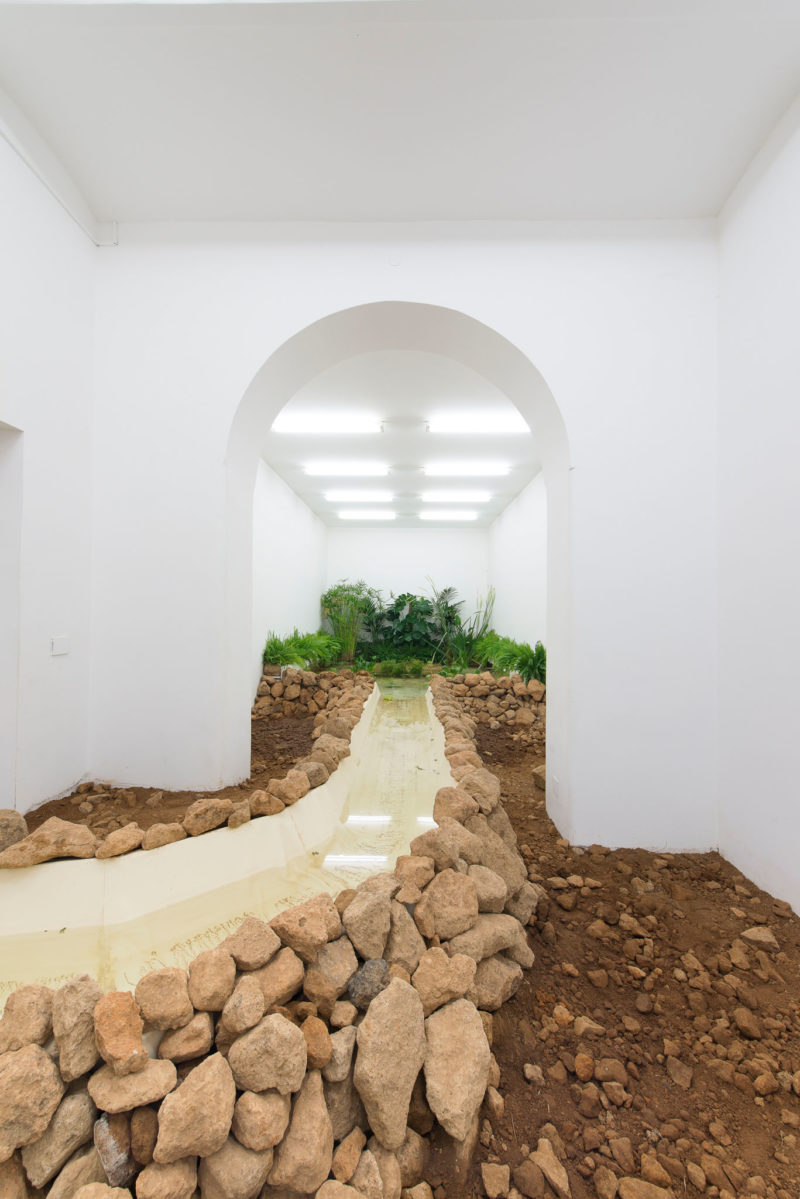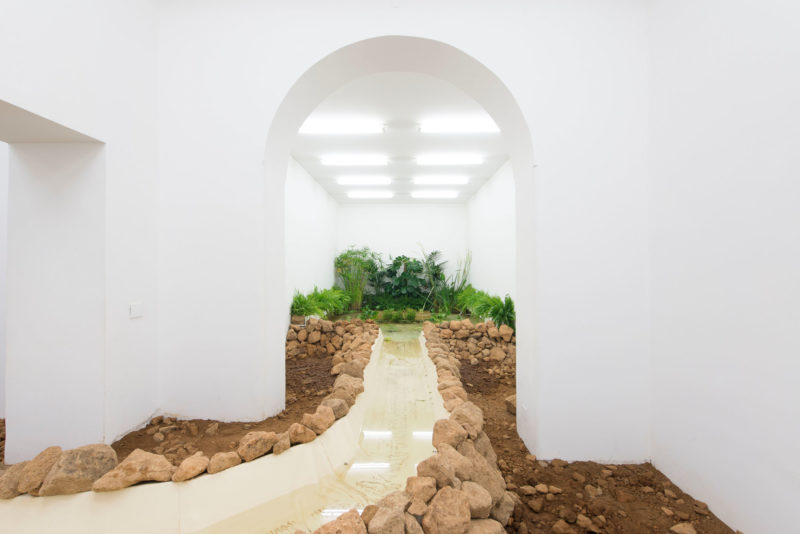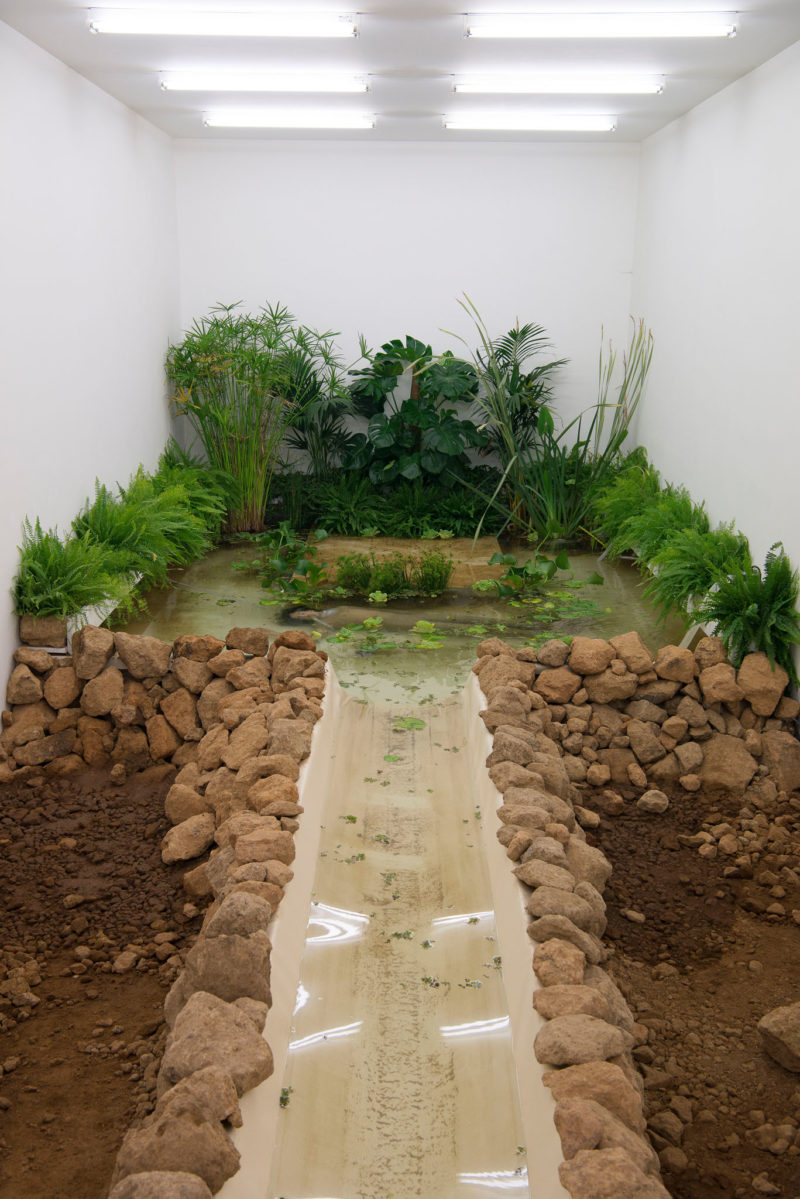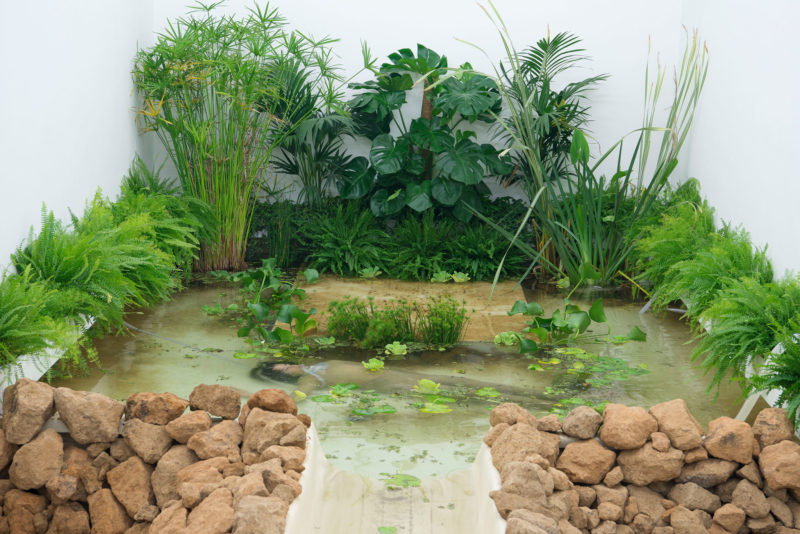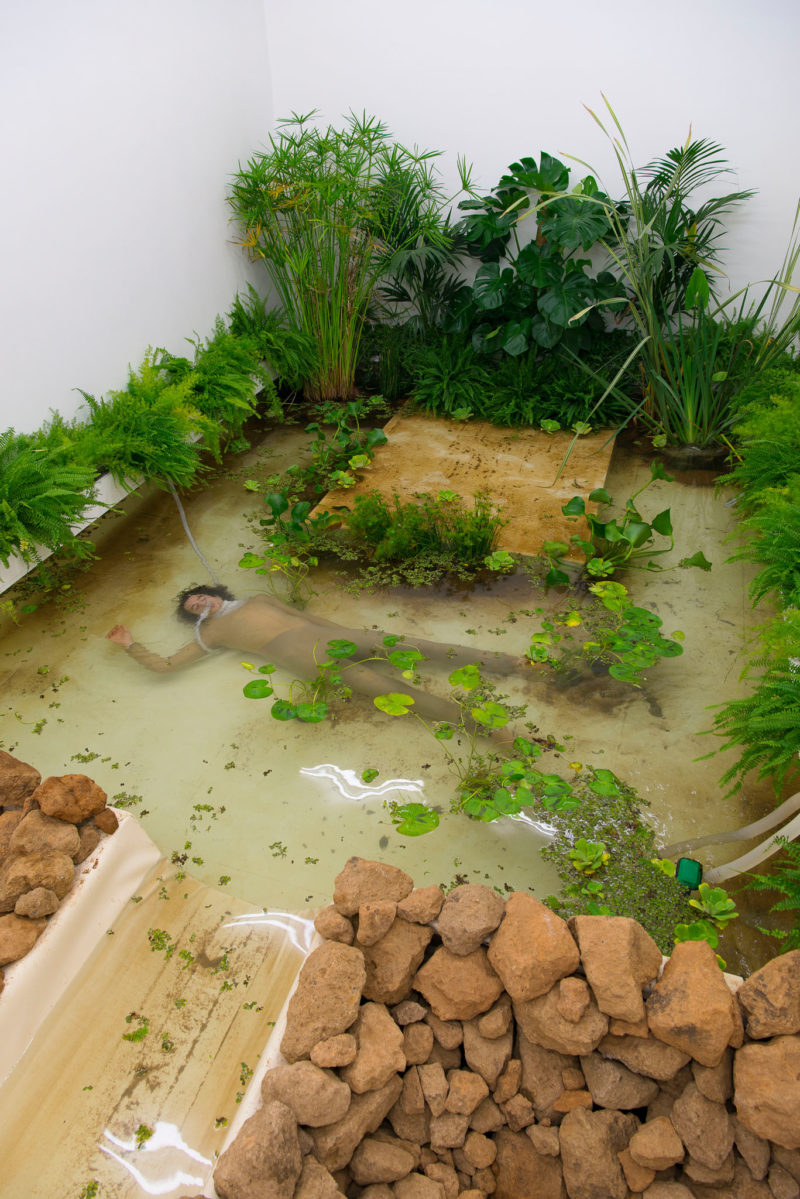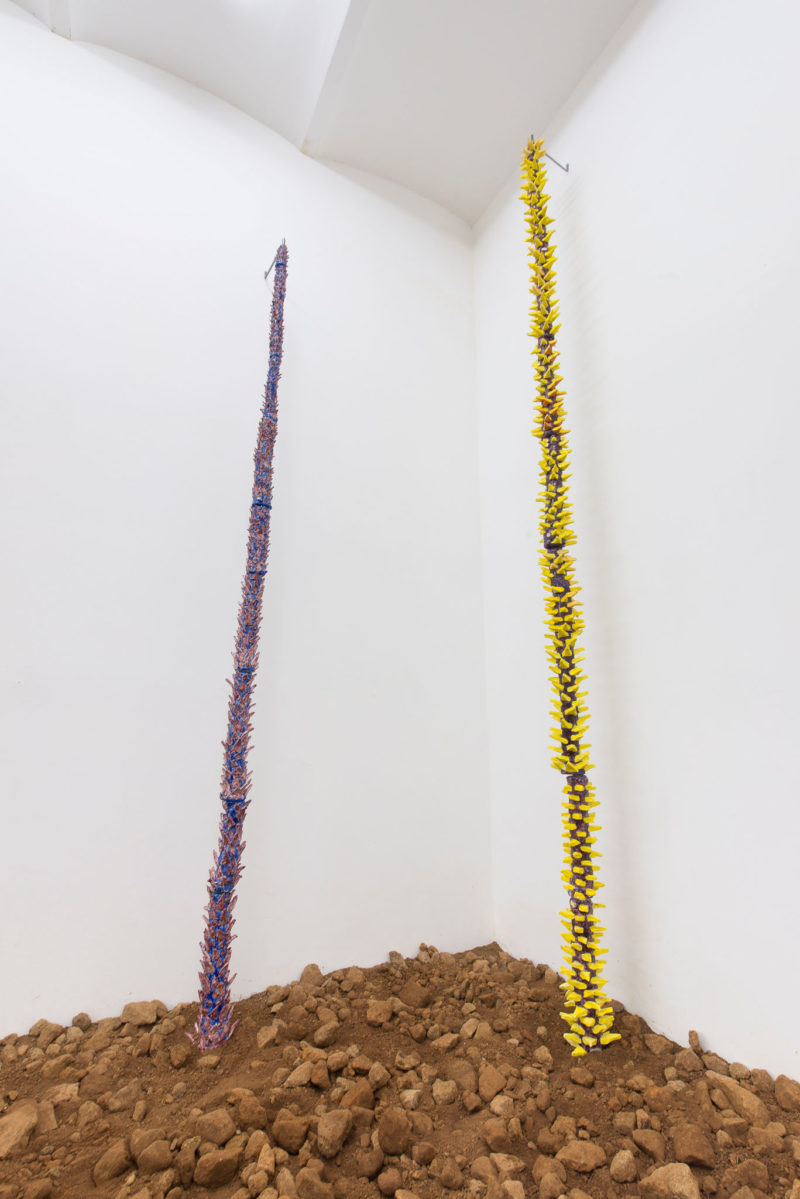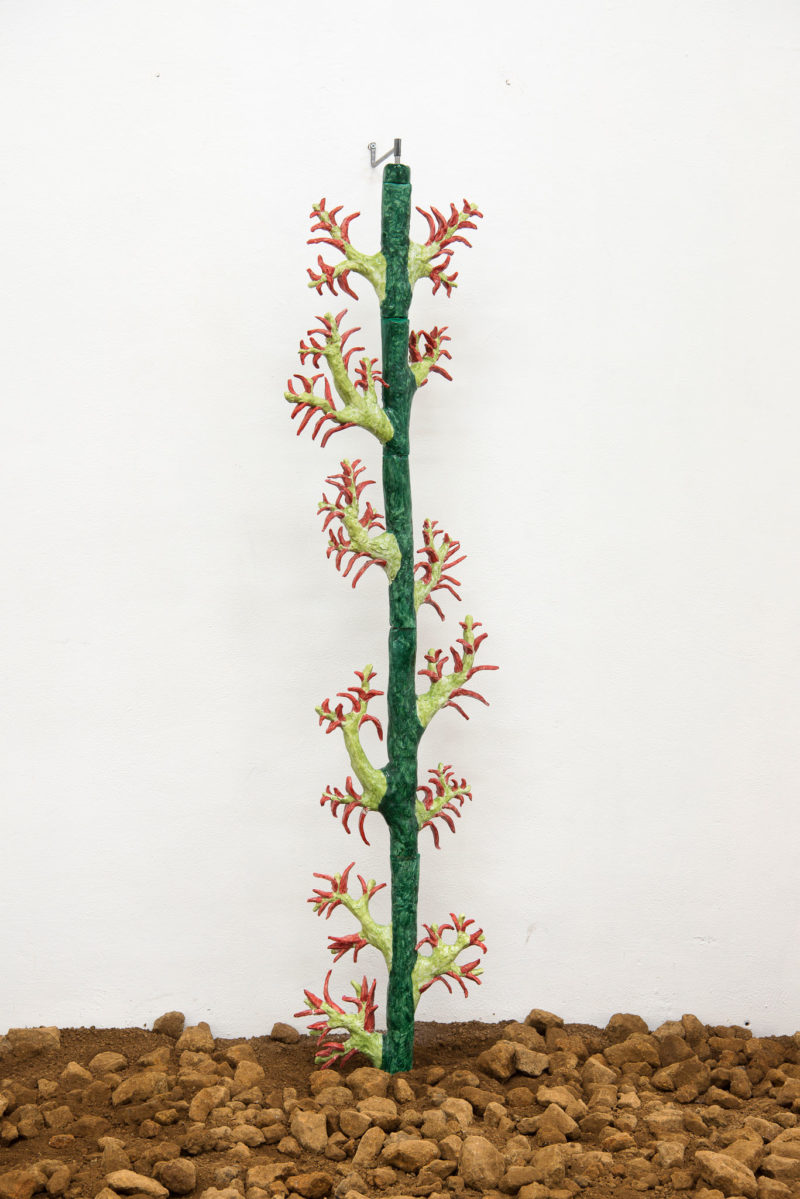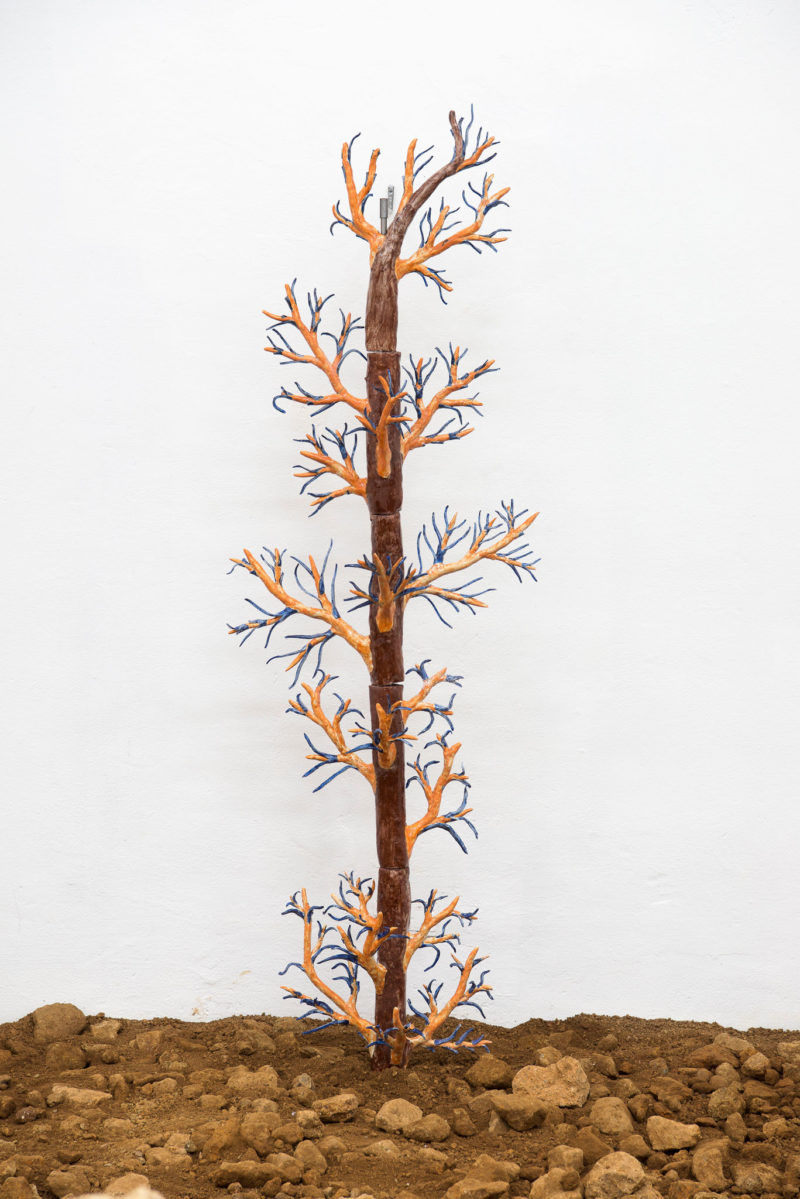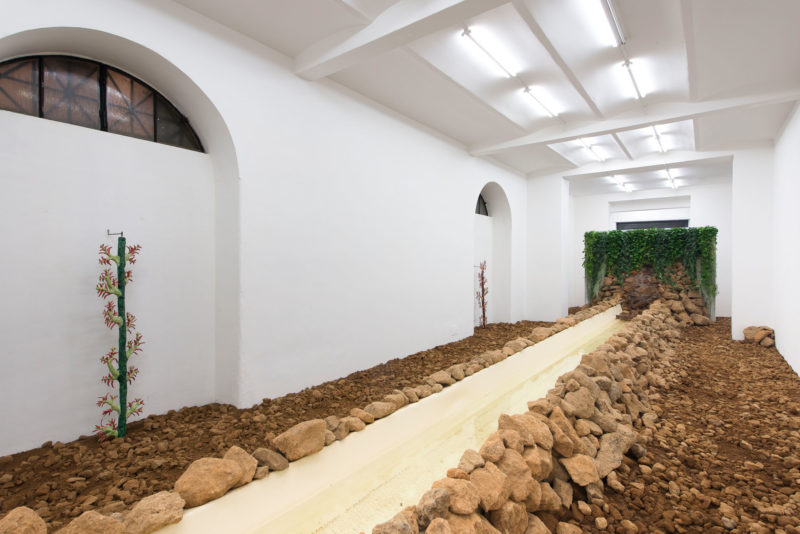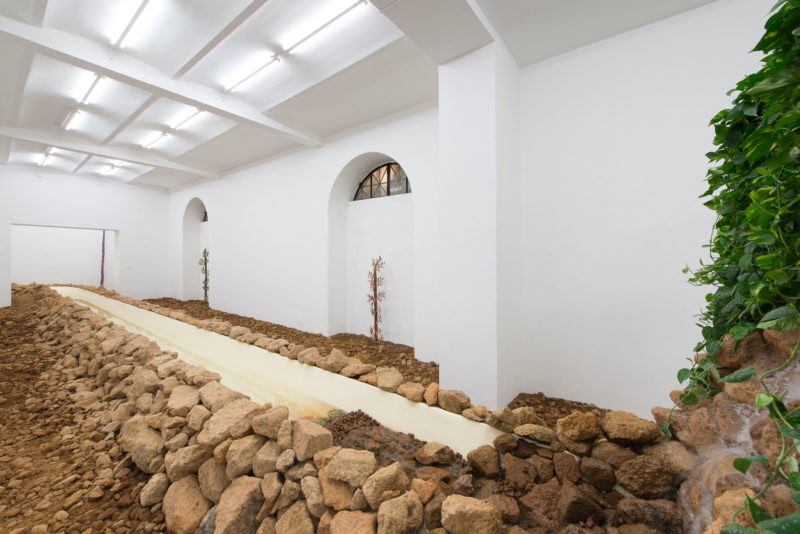Giovanni Vetere at The Orange Garden
Giovanni Vetere
Squid Dinner
The Orange Garden, Rome
October 18 – November 8, 2018
“Myths are the earliest forms of science…it has been said that the myth is a public dream, dreams are private myths. Unfortunately we give our mythic side scant attention these days. As a result, a great deal escapes us and we no longer understand our own actions. So it remains important and salutary to speak not only of the rational and easily understood, but also of enigmatic things: the irrational and the ambiguous. To speak both privately and publicly.”1
In 1964, Jacques Yves Cousteau conceived the theory of the Homo Aquaticus, describing a future evolution of the human species capable of living underwater…
A social construct, such as dinner, can become a performative ritual able to transmit core values of society and implant beliefs and customs such as religion, patriarchy, and social hierarchy.2 Squid Dinner, becomes agentive insofar as it enacts change in the world and reflects on pressing political, social and scientific issues. How, then, can performance embody ecological awareness?
Squid Dinner presents a concept of nature that undermines traditional aesthetic notions of ‘the sublime.’ While the power of nature was perceived from a safe distance in the mind of the viewer, today, in the face of global climate shifts, there is no safe distance from which to view nature.3 Giovanni Vetere’s practice directly puts to the test the public’s awareness of the environment and their ability to adapt to new climates. The exhibition challenges the public to embrace an unusual landscape, triggering tension between their ability to adapt and their willingness to do so. While provoking their state of sensorial awareness, the exhibition compels the public to discover a new meaning of adaptation in respect to the natural environment.
The flawed and corrupt politicization of science distorts man’s relationship with his environment, endangering all living organisms that result from the infinitely complex negotiation between their genetic code and the surrounding ecosystem. Entering the post-truth era, where fact is all too easily perceived as fiction and fiction as fact, Squid Dinner oscillates between imagination and reality. By materializing a vision of the symbiosis of man and nature, the performance examines the intersection of “myth” and “science” and the thin line that divides them.
Opposing the mechanized vision of singularity, the future speciation of man poses itself as remarkably realistic. Adhering to this posthumanist dialectic, if our biological makeup is defined by our complex relationship with the environment,4 will we evolve according to environmental events? Will organic transhumanism, or rather, the idea of self-enhancement through biological means become a viable future?
Investigating the balances in the relationship between man and nature, the exhibition aims to engender a sense of mutability of the human race and, as the rising sea levels threaten human civilization, life under water no longer presents itself as a inevitable fate for the human race but rather as an aquatic Arcadia.
1 Mary Zimmerman, Metamorphoses, theatre play, scene 8, dialogue between Therapist (Apollo) and Phaeton, 1996.
2 Deborah A. Kapchan, Eight Words for the Study of Expressive Culture, 2003.
3 A. Carson and A. Berleant (eds.), The Aesthetics of the Natural Environment, 2004, pg. 82
4 A recent article in The Economist described a how a tribe in South East Asia, whose diet is mainly composed of seafood, have developed a larger spleen in order to remain under water for long periods of time. (The Economist Online, Meet The Bajau, 21 April 2018).

